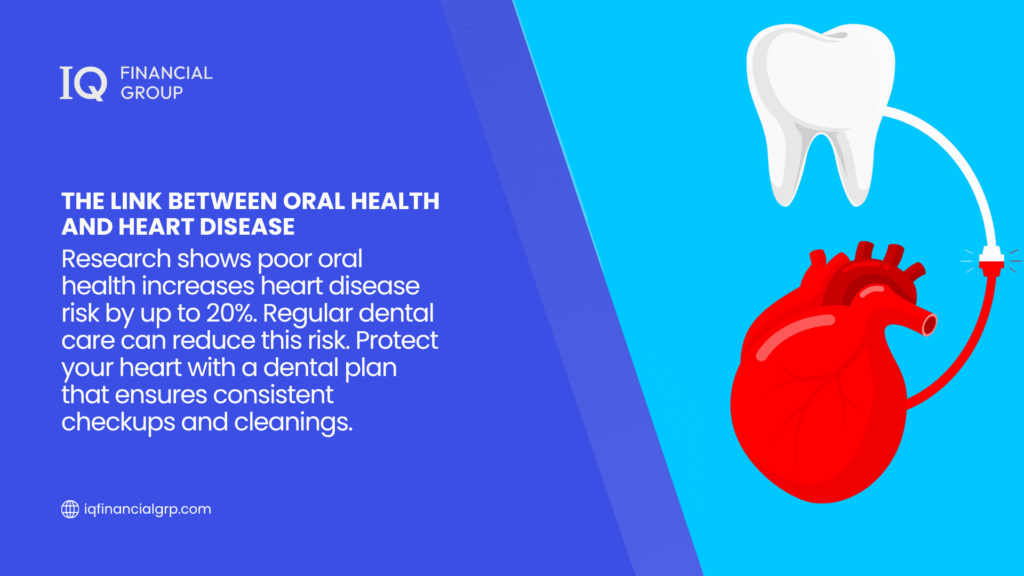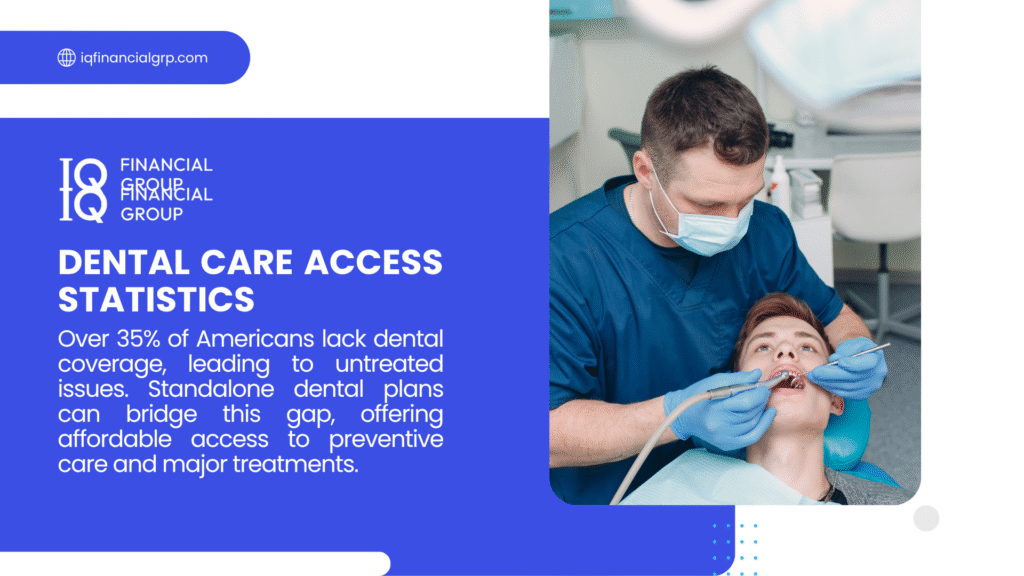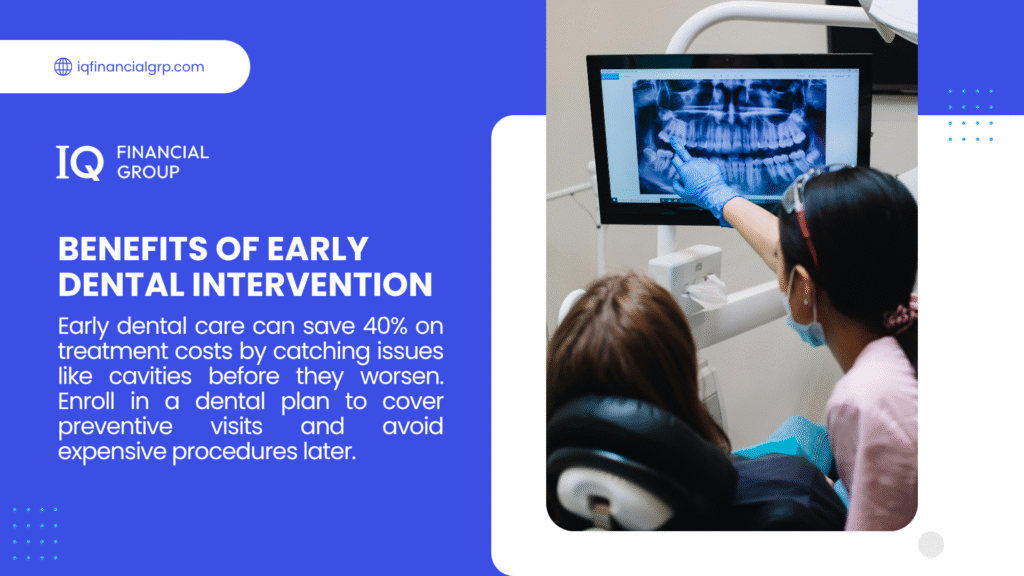So, can I get dental insurance without health insurance? Yes, you can get dental insurance without having health insurance. These are two completely different types of coverage that don’t depend on each other at all.
Your teeth need care, whether you have health insurance or not. Dental problems don’t wait around for you to get medical coverage first. A cracked tooth hurts just as much if you’re uninsured as it does if you have the best health plan in the world.
The whole idea that you need health insurance first is just wrong. Dental insurance companies sell policies to anyone who wants to buy them. You walk in, pick a plan, pay your premium, and you’re covered—no health insurance required, no medical exams, no complicated paperwork asking about your medical history.
This misconception probably comes from workplace benefits, where dental coverage often gets bundled with health insurance. But in the real world, these are separate products sold by different companies for different purposes. Your dental insurance works whether you have health coverage or not.
Different Types of Dental Plans You Can Buy
The dental insurance world has several options, and they all work differently from regular health insurance. Most people go with traditional dental insurance plans that work pretty much like you’d expect – pay monthly, get coverage for dental work.
These plans usually split dental care into three buckets. Preventive stuff like cleanings and checkups gets covered completely. Basic work like fillings gets covered at maybe 70 or 80 percent. Big procedures like crowns or root canals might get 50 percent coverage. It’s straightforward compared to health insurance with all its deductibles and coinsurance nonsense.
HMO dental plans keep costs down by limiting which dentists you can see. You pick one dentist from their approved list, and that’s where you go for everything. These plans usually cost less each month, maybe $20-$40, but you’re stuck with their network.
PPO dental plans cost more but let you see any dentist you want. You’ll pay less if you stick with their preferred providers, but you’re not locked in. These might run $30-$70 monthly depending on how much coverage you want.
Then there are dental discount plans, which aren’t really insurance at all. You pay an annual fee, usually around $100-$200, and get discounts at certain dental offices. No waiting periods, no claim forms, just walk in and pay the discounted rate. Some people love these because they’re simple and work immediately.

What This Actually Costs
Monthly premiums for decent coverage typically run between $25-$60 for an individual. That’s way less than health insurance, which can easily cost $300-$500 monthly for similar coverage levels.
But dental insurance has this thing called an annual maximum that health insurance doesn’t really have anymore. Most dental plans will only pay out $1,000-$2,000 per year total. After that, you’re on your own until next January.
| Plan Type | Monthly Premium | Annual Max | What You Get |
| Basic HMO | $20-$35 | $1,000 | Network dentists only |
| Standard PPO | $35-$55 | $1,500 | More dentist choices |
| Premium PPO | $50-$80 | $2,000 | Best coverage, most flexibility |
The annual max sounds limiting, but it actually works out okay for most people. Regular cleanings, checkups, and maybe a filling or two usually come in well under those limits. It’s only when you need major work like multiple crowns or extensive periodontal treatment that you bump up against the ceiling.
Deductibles are usually pretty reasonable too – often just $50-$100 per year. Compare that to health insurance deductibles that can hit $5,000 or more, and dental insurance starts looking pretty good.
Most plans also have waiting periods for bigger procedures. You might get cleanings covered right away, but crowns or root canals could have a 6-12 month wait. It’s annoying if you need work done immediately, but it keeps the insurance companies from getting hammered by people who sign up right before major dental work.
How Dental Coverage Differs from Health Insurance
Dental insurance operates on totally different principles than health insurance. Health insurance has gotten incredibly complicated over the years, with high deductibles, complex networks, and benefit structures that require a PhD to understand. Dental insurance stayed relatively simple.
Most dental procedures are pretty standardized. A filling is a filling, a crown is a crown. The prices don’t vary wildly like they do in medical care, where the same procedure might cost $500 at one hospital and $5,000 at another. This predictability makes dental insurance much more straightforward.
Dental plans also reset every January 1st like clockwork. Your benefits start fresh each year, which is actually kind of nice. Health insurance often carries deductibles and other complications from year to year, but dental insurance gives you a clean slate annually.
The connection between dental health and overall health keeps getting stronger in medical research. Poor dental health links to diabetes, heart disease, and other serious conditions. But insurance companies still treat them as completely separate things. Your dental insurance won’t help with medical bills, and your health insurance typically won’t cover dental work.
Just like people research what health insurance covers for medical needs, dental coverage requires its own investigation since the rules are completely different.
Finding the Right Dental Plan
Shopping for dental insurance isn’t nearly as complicated as shopping for health insurance, but you still need to do some homework. Start by making a list of dentists in your area that you’d actually want to see. Then check which insurance plans they accept.
Most dental offices are pretty helpful about this stuff. Call and ask which insurance companies they work with and which ones they recommend. They deal with insurance claims all day, so they know which companies pay quickly and which ones are a pain to work with.
Timing matters more than you might think. If you sign up for coverage in January, you get the full year’s benefits. Start in July, and you’re only getting half a year’s worth of benefits before everything resets in January. For routine care, this doesn’t matter much, but if you’re planning major work, timing can save you money.
Don’t just look at the monthly premium. A plan that costs $10 less per month but has a $500 lower annual maximum might not be the bargain it appears to be. Also pay attention to the network size – a cheap plan doesn’t help much if you can’t find a decent dentist who accepts it.
The waiting periods can be deal-breakers depending on your situation. If you need major work done soon, you might be better off with a dental discount plan initially, then switching to traditional insurance later for ongoing coverage.

What Dental Insurance Won’t Do
Dental insurance has some pretty significant limitations that catch people off guard. Cosmetic work like teeth whitening or veneers usually isn’t covered unless there’s a medical reason for it. If you want a Hollywood smile just because, you’re paying out of pocket.
Orthodontics coverage is hit or miss. Some plans include it, others don’t. When it is covered, there’s usually a separate lifetime maximum that’s pretty low – often just $1,000-$2,000 total. Adult braces get even less coverage than kids’ braces in most cases.
Pre-existing conditions can be tricky. If you’ve got ongoing dental problems when you sign up, don’t expect immediate coverage for related work. You’ll probably have to wait out those waiting periods first.
Most plans have something called a “missing tooth clause”. If you’re missing teeth before you get the insurance, they won’t cover replacing those teeth. It’s their way of avoiding people who sign up specifically to get expensive implants or bridges.
There are also frequency limits on various procedures. You can typically get cleanings twice a year and X-rays once a year. Try to get more than that, and you’ll probably get denied, even if your dentist thinks you need them.
Making Your Coverage Work Better
Once you have dental insurance, there are ways to squeeze more value out of it. The biggest one is actually using your preventive benefits. Those free cleanings can help catch problems early when they’re cheaper to fix.
If you need expensive work done, try to time it strategically. Since benefits reset every January, you might be able to spread major work across two benefit years. Get some work done in December, then finish up in January to get two years’ worth of coverage.
Keep good records of everything. Insurance companies make mistakes, and having documentation helps when you need to appeal a denied claim. Save all your paperwork, take notes on phone calls, and keep copies of everything you submit.
Don’t be afraid to ask questions. If a claim gets denied and you don’t understand why, call the insurance company and ask for an explanation. Sometimes it’s just a coding error that can be fixed easily.
Understanding your benefits helps too. People often wonder about coverage for specific procedures, similar to questions about eye exams or braces. With dental insurance, the answers are usually pretty clear if you read your plan documents.
Other Ways to Handle Dental Costs
Traditional insurance isn’t the only way to manage dental expenses. Health Savings Accounts (HSAs) and Flexible Spending Accounts (FSAs) let you pay for dental work with pre-tax dollars, which effectively gives you a discount equal to your tax rate.
Some dental practices offer their own membership plans instead of dealing with insurance companies. You pay an annual fee and get discounts on all services plus free cleanings and checkups. These can work well if you like a particular dentist and want to avoid insurance hassles.
Dental schools often offer discounted care provided by students under supervision. The work takes longer since students are learning, but the quality is usually good and the savings can be substantial.
Care credit and similar medical financing programs offer extended payment plans for dental work. While not insurance, these programs can make expensive procedures more manageable by spreading payments over several months or years.
Some employers offer dental benefits even if they don’t provide health insurance. Part-time workers or contractors sometimes have access to group dental plans even without full health benefits.

Get Expert Help with Your Dental Insurance Needs
Dental insurance shopping doesn’t have to be confusing or overwhelming. The insurance professionals at IQ Financial Group understand the dental insurance market and can help you find coverage that fits your specific situation and budget.
The right dental coverage protects your oral health while providing financial security against unexpected dental costs. Don’t let dental expenses catch you unprepared. Contact us today to explore your dental insurance options and find the coverage that works best for you.

